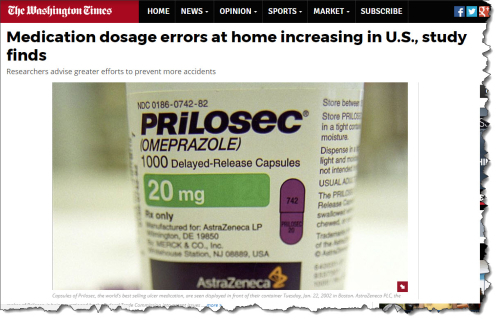Study: More Americans Making Costly Dosage Mistakes When Taking Meds at Home
According to the results of a new study published in the medical journal Clinical Toxicology, more Americans are making dosage errors when self-administering drugs at home. These mistakes have resulted in hospital admissions in the tens of thousands, as well as over 400 deaths over the previous 13 years.
Perhaps even more significantly, the problem is expected to get worse as greater numbers of Americans are diagnosed with diseases that require chronic management through medications, like heart disease and diabetes, according to a write-up on the study in The Washington Times.
The researchers analyzed over 67,000 cases from the U.S. Poison Control Center between 2000 and 2013, and found that cardiovascular drugs, analgesics (pain medication), and hormone/hormone-related drugs, like insulin, are the medications most likely most likely to be involved in an individual���s dosage mistake.
Nicole Hodges, a research scientist at Nationwide Children���s Hospital in Columbus, Ohio and the lead author of the study, said, ���These medication errors are a significant public health burden. A third of the cases in the study resulted in hospital admission, and so they are something we want to take seriously. As prescribing of those cardiovascular medications, opioids and insulin ��� as those all continue to rise, we���re likely to see an increase in these medication errors as well.���
Just one more consequence of what has long been Americans��� growing reliance on medications to manage ailments that could otherwise be greatly mitigated by lifestyle choices.
In concluding remarks, the researchers noted that ���the rate of non-health care facility medication errors resulting in serious medical outcomes is increasing, and additional efforts are needed to prevent these errors.���
By Robert G. Yetman, Jr. Editor At Large




